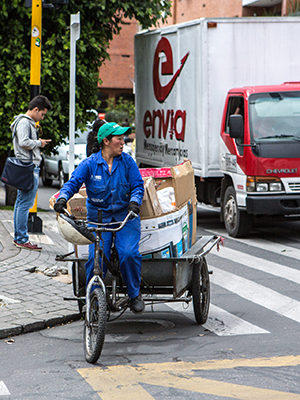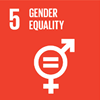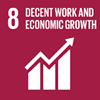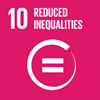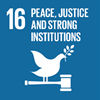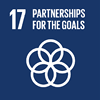Transforming economies, states, and societies
At its core, development is about the well-being of people. But it is also about creating societies which provide fundamental rights and just social political outcomes. Sustainable and inclusive development requires transformative changes across three fundamental areas: in the structures of economies, in the state, and institutions that govern social and market interactions and broader developmental processes, and in society itself. These transformations are central to the achievement of the United Nations’ 2030 Agenda for Sustainable Development and the Sustainable Development Goals (SDGs).
The 2019–23 UNU-WIDER work programme focuses on the interlinked development challenges of transforming economies, states, and societies and maps them against SDGs 5, 8, 10, 16, 17. By mobilizing research evidence for action through the ongoing processes in the UN and its member states, the institute continues to work with stakeholders to strengthen capacities for research, technical, and policy analysis, and facilitate exchange of experiences and knowledge towards bold and collaborative development solutions for countries and regions around the world.
Click on the table below to explore our current work or scroll down to search past projects.
35 active and previous projects
Filter by...
2004-05
Jubilee conference - WIDER thinking aheadAbout 200 participants attended the conference, more than 150 of them coming from outside Finland. The conference was open to younger researchers as well as established scholars. A list of participants is available on WIDER’s website. Conferences...
2004-05
Personal assets from a global perspectiveThe project aims to assemble data about the distribution and composition of personal assets in developing, transition, and developed countries and to study the implications of personal asset-holding for economic development. The most important asset...
2004-05
Unlocking human potential conferenceConferences: 17 September 2004 EGDI-WIDER Conference on Unlocking Human Potential: Linking the Informal and Formal Sectors
2004-05
Inequality and poverty in ChinaGetting an accurate picture of poverty and inequality trends and patterns in the world’s most populous country is central to understanding changes in global inequality and poverty – these alter significantly when China is included or excluded. China...
2004-05
International mobility of talentInternational development in the era of globalization needs an effective transfer of knowledge and human capital from the main centres of knowledge creation to developing countries for supporting their growth and development process. Most of the new...
2004-05
Millennium development goals - assessing and forecasting progressAchievement of the MDG goals by 2015 is an ambitious undertaking. The donor community is now mobilizing resources behind the goals, and efforts to implement the goals are now underway at national and international levels. It is inevitable that...
2004-05
Development aid - a fresh lookDevelopment aid has become an increasingly hot topic in international research and policy circles, especially following the adoption of the Millennium Development Goals. Donors are paying increased attention to how they allocate aid across countries...
2004-05
Financial sector development for growth and poverty reductionThe mobilization of domestic savings for private investment plays a crucial role in achieving growth and poverty reduction; this is demonstrated by the historical experience of the now developed countries as well as East Asia. However two problems...
2004-05
Hunger and food security - new challenges and new opportunitiesMillions of people remain desperately food insecure, and over a decade of agricultural-sector reform appears to have achieved little in the way of improving entitlement to food in many countries. This project will investigate why progress in...
2004-05
Tax policy reform in developing countriesSee publications for work connected to this project.
2004-05
Institutions for economic development - theory, history and contemporary experiencesCreating better institutions for development has come to the fore in recent years, reflecting the often poor results of economic reform programmes that failed to take account of the need to develop appropriate supporting institutions. This project...
2004-05
Impact of globalization on the world's poorGlobalization offers new opportunities for accelerating development and poverty reduction. And there is much concern about the distribution of benefits; in particular whether the poor gain from globalization, and under what circumstances it may...
2002-03
Conference on sharing global prosperityConferences: 6 September 2003 WIDER Conference on Sharing Global Prosperity
2002-03
Reconstruction in conflict and post-conflict societiesReconstruction from conflict is a complex and demanding task, and a major challenge for the UN system as well as the wider donor community. National authorities and their donor partners are faced with multiple priorities - rebuilding infrastructure...
2002-03
Global trends in inequality and povertyThe scale and causes of international income inequality and poverty continue to be much debated. Yet, the quality of the analysis and data underlying this debate still leaves much to be desired. Accordingly, this project will collate poverty data to...
2002-03
Spatial disparities in human developmentMany developing and transition countries have considerable regional variation in average household income, poverty, and health and educational status. National human development indicators can therefore mislead policy-makers when large regional...
2002-03
The sustainability of development financingThe real value of official aid flows fell for much of the 1990s, and private capital flows to low-income countries remain mostly limited. The decline in aid flows may endanger the development process, since they finance much of the development budget...
2002-03
The impact of the WTO agreement on low income countriesWhen the Uruguay Round was being negotiated and it was coming to a close, a number of estimates were made about the impact of the agreement on poor countries. Many assessments indicated that there would be a net loss for them while others came up...
2002-03
Social development indicators - measuring human well-beingSummary measures of human well-being are increasingly used to compare and monitor performance within and across countries. The UNDP's Human Development Index (HDI) is one of a number of measures which have done much to refocus attention on the...
2002-03
Long-term development in the CFA-zone countries of Sub-Saharan AfricaMembers of the CFA-zone enjoy currency convertibility, fiscal and monetary policies which are more prudent than SSA as a whole, and a large amount of financial and technical assistance. These advantages do not appear, however, to have resulted in...
2002-03
Innovative sources for development financeA joint project with the United Nations Department of Economic and Social Affairs (UN-DESA) in response to the UN General Assembly call for a rigorous study on ways to increase external finance for developing countries, particularly to meet the MDGs...
2000-01
Refugees, international migration and povertyFleeing poverty, violence and 'ethnic cleansing' millions of people leave their homes every year in search of safety and economic opportunities. In contrast to the migrations of the nineteenth century today's migrations often take place through...
2000-01
Growth and poverty conferenceConferences: 25 May 2001 WIDER Development Conference on Growth and Poverty
2000-01
Debt relief conferenceConferences: 17 August 2001 WIDER Development Conference on Debt Relief
2000-01
Globalization and the obstacles to the successful integration of small vulnerable economiesA key challenge for policy makers is how to bring about the successful integration of the less developed countries into the international system. Many of the obstacles to the meaningful participation of vulnerable developing economies in the...
2000-01
Insurance against povertyHouseholds in developing countries face many risks. Informal insurance mechanisms (marriage, the extended family, and investment in social capital) provide some protection but are weak in the face of major calamities that affect households en masse...
2000-01
Micro-simulation of tax benefit reforms in russiaMicro-simulation models play an important role in policy analysis in developed economies, particularly in connection with the distributional impact of tax and benefit reforms. The objective is to show how the changes affect different households in...
2000-01
The impact of privatization and regulation of utilities and social services in Latin AmericaLatin America has now privatised a large number of utilities (water, electricity, transport, and telecommunications) and now makes more use of market approaches to delivery in the social sectors (education and health). Privatisation has major...
2000-01
Information technology and global economic developmentProject Meetings: 12 January 2001 Project meeting: The New Economy in a Global Perspective Conferences: 10 May 2002 WIDER Development Conference on New Economy in Development
2000-01
Capital flows to developing countries since the Asian crisis - how to manage their volatility?The project intends to fill the gaps in knowledge in two related areas: 1) what determines decisions by lenders/investors to enter or withdraw from individual developing countries? 2) what are the policy implications for macroeconomic and financial...
2000-01
New fiscal policies for growth and poverty reductionMany developing countries are characterised by weak budgetary and revenue institutions, insufficient public spending on priority investments and the macro-economic instability associated with repeated fiscal crises. Moreover, the recent external...
 Join the network
Join the network